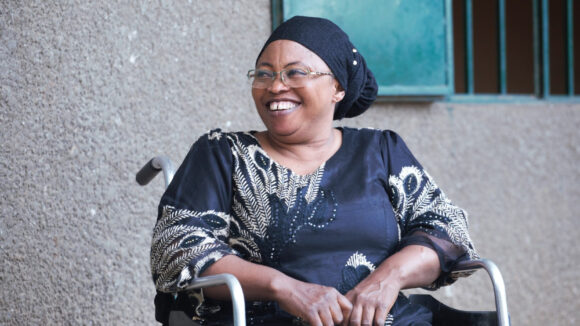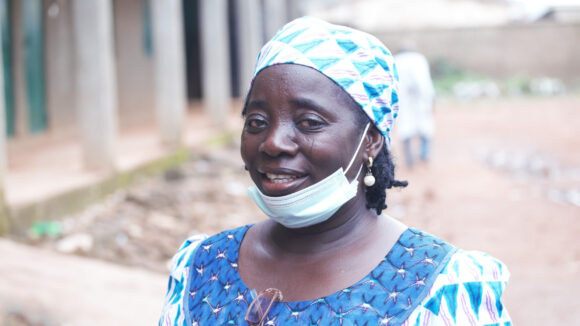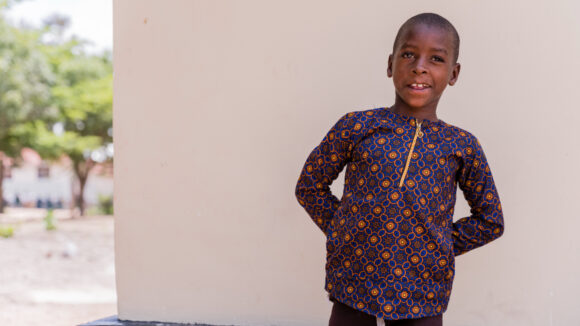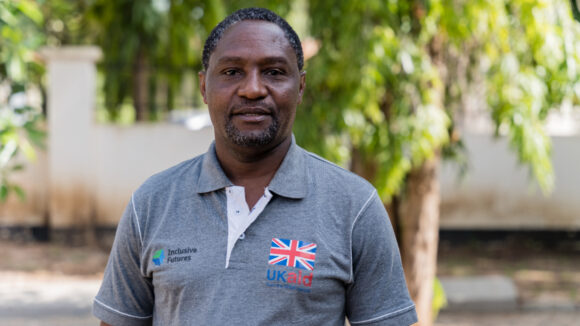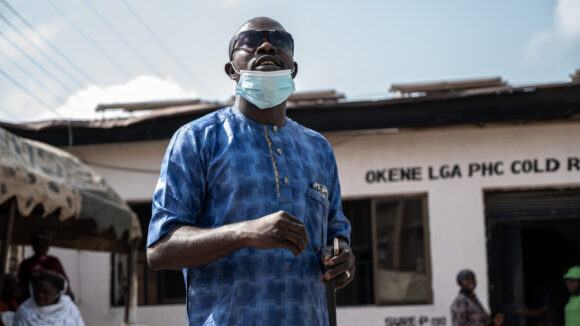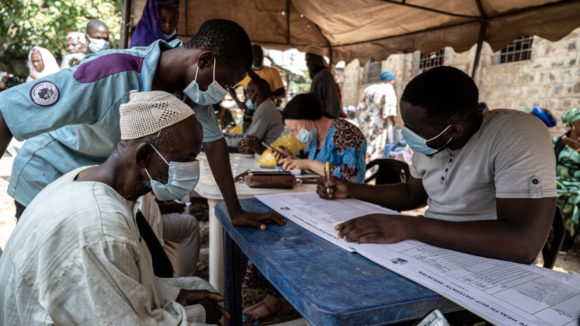Today there are more than 1.3 billion people with disabilities – about 16 per cent of the world’s population.
The global development community has committed to helping everybody and leaving no one behind. If everyone isn’t included, then development programmes contribute to and widen the gap between those with opportunities and those without.
Together with our partners, Inclusive Futures is building evidence around what approaches are the most effective at delivering long-term improvements in the lives of people with disabilities.
Through our disability inclusive projects, we’ve learned that building collaborative alliances with and between local authorities and organisations of people with disabilities (OPDs) can help to address knowledge and attitude gaps and increase impact.
We’ve found that setting up committees and meeting spaces where OPDs can work with local authorities can be particularly effective – as decision-making becomes shared and projects are more likely to have sustained and broader impact.
We asked some OPD members, local government officers and project staff, who we work with, about their experiences working together and what they achieved.
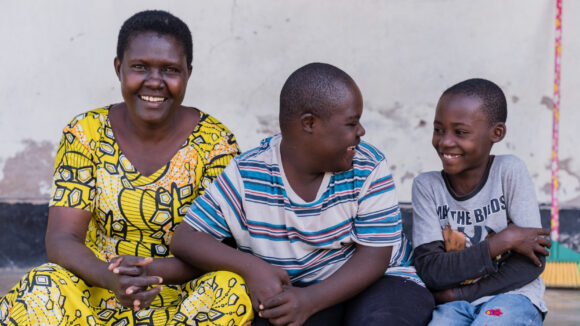
Read the learning brief
Learn how local authorities, non-governmental organisations and organisations of people with disabilities can form effective partnerships to improve disability inclusion.
Download the pdfSupport Mainstreaming Inclusion so all Learn Equally (SMILE project)
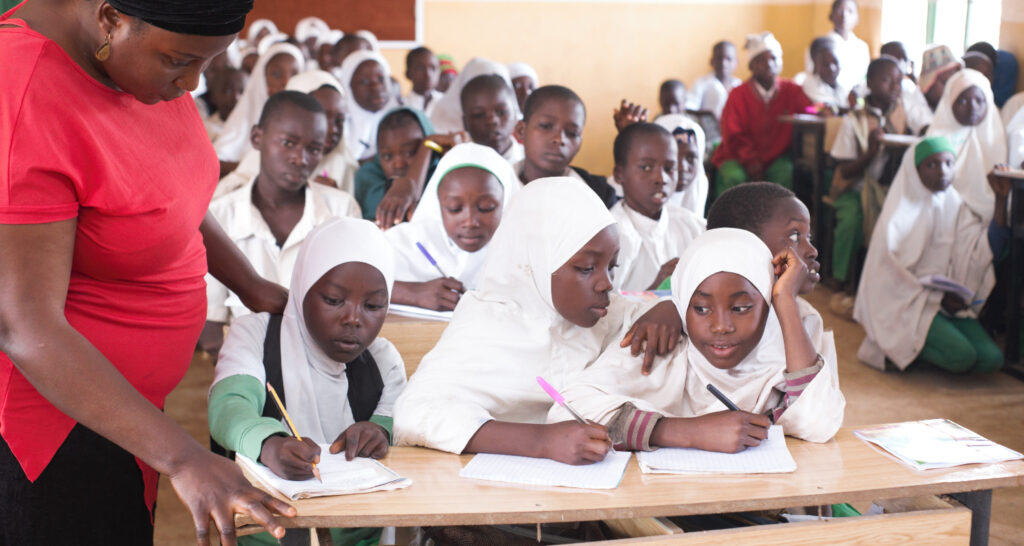
In Kaduna, Nigeria, this community-driven inclusive education project aims to ensure that all children can successfully participate in their local school.
The SMILE project is managed by a steering committee, which brings together government representatives from a federal, state and local level as well as representatives from OPDs, with support from Sightsavers, to strengthen the local education system.
Risikat is the executive director of Women with Disability Self Reliance Foundation, an OPD organisation in Kaduna, and a member of the steering committee. “The steering committee is a combination of government and OPDs,” she explains. “Our role as an OPD is to increase the participation of people with disabilities and make sure that projects are more inclusive.
“Members of the local governments are members of the inclusive education committee. So, the decisions are made with them. They join in designing, implementing and even monitoring the projects, which is very important.”
For Risikat, the steering committee partnership will bring benefits for future generations of children with disabilities in Kaduna state. “The current budget shows that Kaduna state government is currently trying to train more than 200 teachers on inclusive education.
“Kaduna is even trying to replicate inclusive education across the state, which is a great achievement.”
Josephine is a local government education desk officer in Kaduna state and also a member of the steering committee. She says: “The committee comes together to discuss our challenges and how to support this project. That is why we have received training in the local government [on disability inclusion].
“To be frank, without including people with disabilities in decision-making, the project would crash. Because they know what they are going through, they know how to give advice and they know the solutions. With them giving their ideas at the time of decision-making really helps. Partnering with OPDs has changed this project a lot.”
When asked about the long-term impact of the project, she says: “As a local government in Kaduna state in Nigeria, we will not stop doing what they have taught us; we will even do more and build on that.”
Promoting inclusive education for girls with disabilities
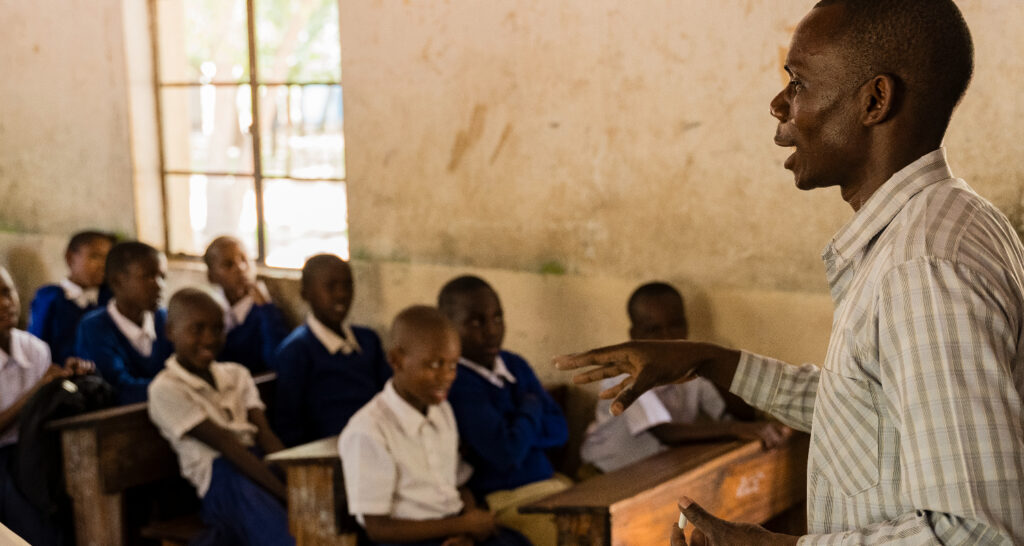
In remote districts of the Mwanza and Shinyanga regions of northern Tanzania, our inclusive education project is supporting children with disabilities, especially girls, to learn at early years and primary schools.
Within its first year, the inclusive education project in Tanzania established Misungwi district’s first Education Support Resource and Assessment Centre (ESRAC) at a primary school. Through OPD outreach, parents and caregivers of children with disabilities are encouraged to bring their children to the centres to be screened and assessed. At the centres, a trained team of staff, including a doctor and social welfare officer, determine:
- The child’s individual learning needs
- Where should they be placed within the school system
- What additional support they or their families might need
- Whether they should be referred for medical support
The project’s major success has been to influence national policy on inclusive education. It brought together a group of OPD partners and government representatives at a local, district and ministerial level to research and design a new model for inclusive education within mainstream schooling.
The group was able to advocate for the Tanzanian government to add the new inclusive education model to their National Strategy for Inclusive Education (2021-26). In addition, ESRACs are being established at schools across the country.
Benjamin is a technical lead for disability inclusion at Sense International and works on the project.
“Now through partnership with the government, there are guidelines for establishing ESRACs across the country,” he says. “The President’s Office, Regional Administration and Local Government has directed all councils across the country to establish ESRACs in each district.
“This is different from what was done before at a regional and national level, where parents could not afford to go due to the cost of travelling for this service. But having ESRACs at a district level means that service comes to the community.
“The President’s Office, Regional Administration and Local Government has also established guidelines for implementing inclusive education at the local government level. We are moving at a pace where, in the near future, we can say that children with disabilities can reach their full potential through this inclusive education project.”
Improving access to eye care
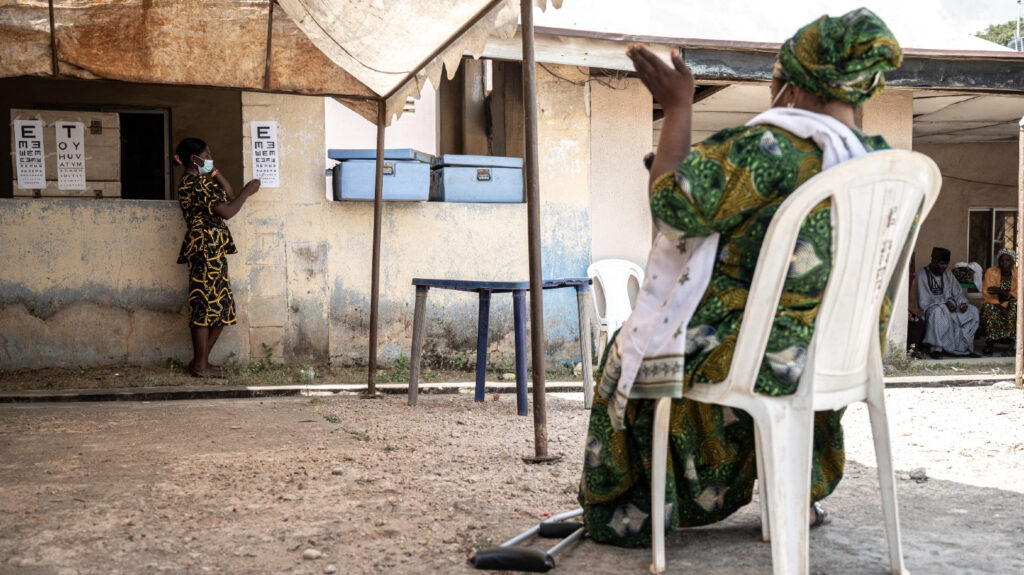
In Nigeria, our inclusive eye health project worked closely with the Kogi state government and local OPDs to establish a comprehensive and inclusive eye care programme, helping to improve the local eye health system and access to eye care in the state.
The Nigeria project carried out training sessions designed and delivered in partnership with OPDs to educate health care workers on the needs of people with different impairments and how to improve their skills when interacting with people with disabilities.
Inclusive Futures partner Sightsavers also trained OPDs to lead local authorities through accessibility audits of public health facilities. OPD members drew on their personal experiences to demonstrate the importance of making public buildings accessible.
Ahmed is secretary for the National Association of the Blind in Kogi, one of the project’s OPD partners.
“There are a lot of barriers that people with disabilities face in accessing health care,” Ahmed explains. “There are no ramps for people on wheelchairs. There is no sign language interpreter or sign on the wall to direct those who cannot hear or talk. Then there is no braille material to interpret drugs for people with visual impairments. We also have attitudinal barriers like discrimination and stigmatisation in the hospital facility.
“I trained the hospital staff on how the hospitals should be made accessible to people with disabilities – we’ve passed on a lot of knowledge to sensitise everybody in the hospital facility.
“Partnering with OPDs has improved this project because we have been involved in the planning, and Sightsavers’ project staff really know what OPDs want in every segment of their implementation.”
Dr Joshua Omojo Ibenu is a programme officer for eye health at Sightsavers, who worked on the project.
“Partnering with OPDs has been very strategic for the project,” he explains. “You get to know what their needs are, the things that directly affect them and the things that you can change. And with people with disabilities at the forefront of the project, they can implement these changes in a way that makes life better for them.
“We work directly with the health management team of the states, the hospital management board and the state’s Ministry of Health. And we train senior management staff, junior management staff and staff at the grassroots. This is all in a bid to improve sustainability and make sure even when Sightsavers is no longer here, Kogi state as a whole improves its services for people with disabilities.”
Images © Michael Goima/Sightsavers and Kabantiok Solomon/Sightsavers
More news and opinions
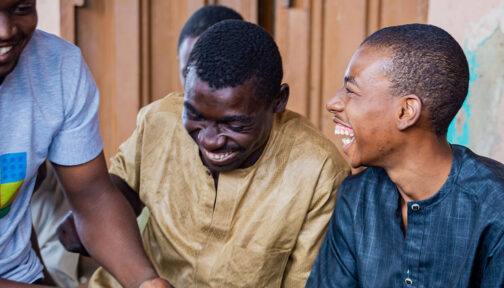
Global Disability Summit 2025: Closing the gap between disability inclusion and development
Inclusive Futures is attending the summit in Berlin on 2-3 April. Visit our booth or attend our panel event to connect with us and learn more about our programme insights.
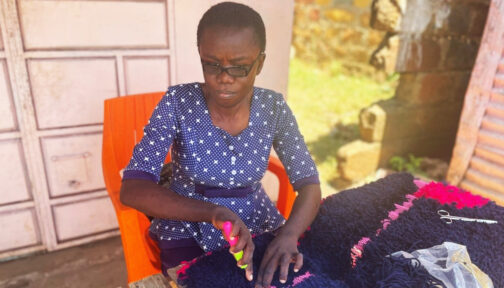
Sense International wins prestigious Zero Project award for its work with entrepreneurs with disabilities
Sense International has won a 2025 Zero Project Award for empowering individuals with deafblindness and complex disabilities in Kenya to build successful businesses and achieve financial independence.
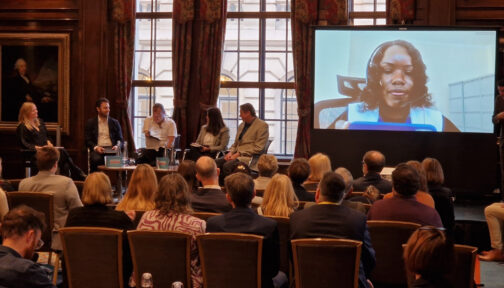
Driving change: launching the six principles for inclusive development
Inclusive Futures and the UK Foreign, Commonwealth & Development Office marked International Day of People with Disabilities by jointly hosting an event to launch the six principles for inclusive development.
Sign up to Inclusive Futures emails today
Sign up to Inclusive Futures emails today
Want to hear more from Inclusive Futures? Sign up to receive the latest research from our programmes and resources to help make your work inclusive of people with disabilities.
For more information see our privacy policy
